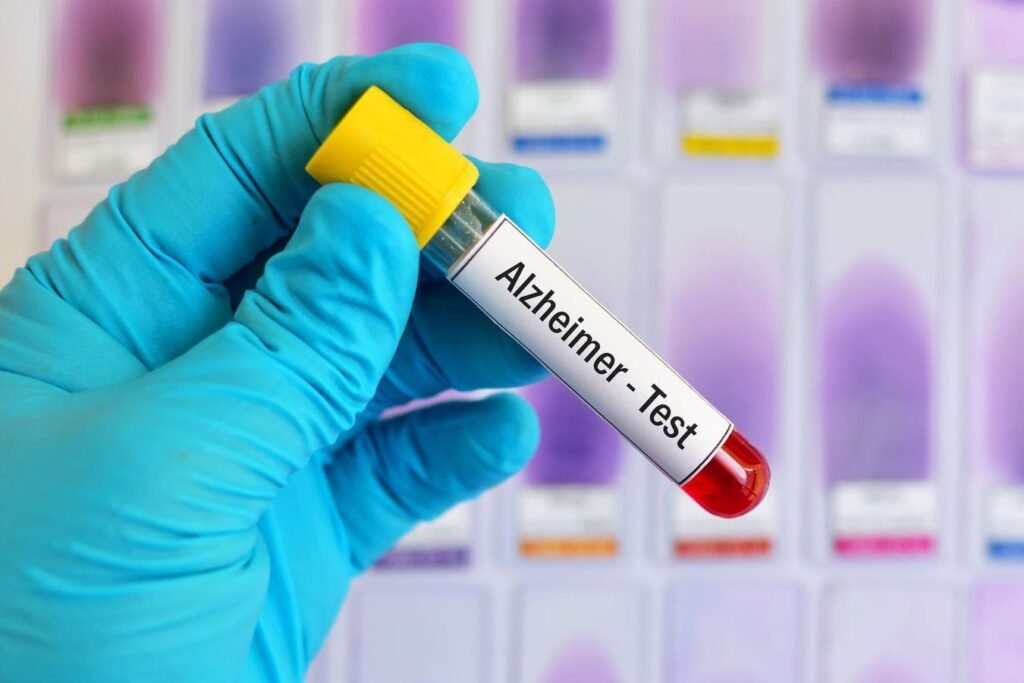Test tube with blood sample for Alzheimer’s disease test.
Launching this month, a newly approved blood test aims to detect biomarkers for Alzheimer’s disease, potentially revolutionizing clinical diagnosis. The Lumipulse G Plasma Ratio test, cleared by the FDA, offers a less invasive alternative to traditional diagnostic methods like PET scans and lumbar punctures. This advancement may facilitate earlier intervention strategies, benefiting patients, families, and caregivers.
Alzheimer’s, a condition affecting around seven million Americans, is projected to double by 2050. The disease gradually impairs memory and cognitive function, leading to symptoms such as disorientation, mood changes, and difficulty with daily activities.
The recently authorized blood test demonstrated 92% accuracy in clinical trials for identifying individuals with elevated levels of amyloid and tau proteins associated with Alzheimer’s. This ratio helps assess the presence of amyloid plaques in the brain, aiding in early detection in individuals aged 55 and above exhibiting cognitive decline.
In conjunction with the approved drugs Leqembi and Kisunla, which target beta amyloid plaque in the brain, the new diagnostic test could facilitate personalized treatment plans. While these therapeutics have shown modest efficacy in slowing disease progression, concerns about their safety and side effects persist.
The cost of the Lumipulse test, compared to expensive imaging techniques like PET scans, remains undisclosed. Coverage by medical insurance providers, including Medicare, is uncertain but may be influenced by the potential for wider accessibility and lower costs per unit.
Although the blood test offers a promising advancement in Alzheimer’s diagnosis, limitations such as false positives and the complexity of the disease itself underscore the need for comprehensive evaluation and personalized care.


